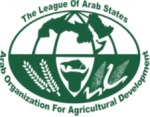Oliver Kirui, Khalid Siddig, Mosab Ahmed, Hala Abushama, Alemayehu Seyoum Taffesse This study delves into the intricate dynamics of post-conflict agriculture in Sudan through a recent nationwide pre-harvest survey. Conducted between August and October 2023, the survey aimed to unveil the impact of conflict on smallholder farmers, their intentions, and the challenges faced during the […]
تفاقم أحد أبرز الانهيارات الاقتصادية الوخيمة التي شهدها العالم
تسبب ارتفاع أسعار المواد الغذائية واضطراب الإمدادات جراء نشوب الحرب في "أوكرانيا" في إلحاق أضرار فادحة بالبلدان الواقعة في "منطقة الشرق الأوسط وشمال أفريقيا"، بما في ذلك على سبيل المثال "مصر" و"السودان" و"اليمن" وهو ما يُعزى بشكل جزئي إلى فرط اعتمادها على واردات حبوب القمح. وبالرغم من ذلك، يتضرر "لبنان" – الذي يجتاز بالفعل في خضم أحد أبرز الانهيارات الاقتصادية الوخيمة التي شهدها العالم منذ خمسينيات القرن التاسع عشر – بمعدل استثنائي من التأثيرات السلبية القائمة في مجال الأمن الغذائي والناجمة عن اندلاع الصراع بين "روسيا" و"أوكرانيا".
One Of the World’s Worst Economic Collapses, Now Compounded By The Ukraine Crisis: What’s Next For Lebanon?
High food prices and supply disruptions triggered by the Ukraine war are hitting Middle Eastern and North African (MENA) countries like Egypt, Sudan, and Yemen hard, partly due their heavy dependence on wheat imports. But in the region, Lebanon—already in the midst of one of the world’s worst economic collapses since the 1850s—is uniquely vulnerable to food security impacts from the Russia-Ukraine conflict.
الصراع القائم بين روسيا وأكرانيا وتفاقم مشاكل الأمن الغذائي في السودان
تسبب الغزو الروسي لأوكرانيا في تعطيل الإنتاج الزراعي والتجارة من إحدى أهم مناطق العالم لتصدير المواد الغذائية، وتهدد الحرب بارتفاعٍ أسعار المواد الغذائية المتزايدة بالفعل، وستؤدي كذلك إلى ندرتها، ولا سيما في المناطق الأكثر اعتمادًا على القمح والصادرات الأخرى من روسيا وأوكرانيا – وتحديدًا بلدان منطقة الشرق الأوسط وشمال إفريقيا.
The Russia-Ukraine conflict is likely to compound Sudan’s existing food security problems
Russia's invasion of Ukraine has disrupted agricultural production and trade from one of the world's major food exporting regions. The war threatens to drive rising food prices still higher and create scarcity, especially for regions most dependent on wheat and other exports from Russia and Ukraine—particularly the Middle East and North Africa.



